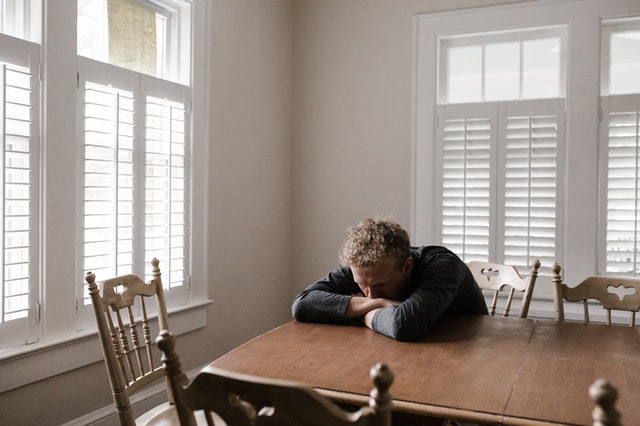Contrary to common misconceptions, obsessive-compulsive disorder goes beyond the urge to keep every nook and cranny at home spotlessly clean, clutter-free, alphabetized, color-coordinated, or symmetrical. Unlike the OCD stereotypes we see in mainstream media, real people with obsessive-compulsive disorder do not take pride nor pleasure in scrubbing their floors or organizing their things.
So, what is OCD exactly?
Understanding Obsessive-Compulsive Disorder
The National Institute of Mental Health defines obsessive-compulsive disorder (OCD) as a chronic and debilitating mental illness wherein the person suffers from a vicious cycle of having distressing and irrepressible thoughts (obsessions) that trigger uncontrollable behaviors (compulsions) over and over again, which consumes and hinders them from living a normal life.
Some people may confess to having occasional intrusive and unwanted ideas or impulses, but this does not mean that they have a bit of OCD. According to the American Psychiatric Association, a definitive diagnosis of obsessive-compulsive disorder can only be made if the person is:
- Experiencing repetitive obsession and compulsion regularly for at least an hour every day; or
- It is causing them significant distress that impedes their ability to function socially or productively.
OCD is a pervasive mental health disorder that affects 2.2 million people or at least 1-2% of the American population. Obsessive-compulsive disorder can affect children with the average onset of symptoms typically seen by the age of 19. In recent years, data has shown that OCD has become slightly more prevalent in women (1.8%) than in men (0.5%) in the U.S.
Obsessions in OCD
Individuals diagnosed with OCD are gripped with thoughts or mental images that do not align with their personal values. They find these figments terrifying, repelling, and anxiety-inducing.
OCD is a broad-spectrum psychiatric disorder that can come in various forms. Based on a 2014 study, the most common examples of obsessions in people with OCD are:
- Contamination – The excessive fear of getting infected from germs and diseases (herpes, HIV, or common colds), getting dirty from touching bodily fluids (droplets of saliva, urine, or feces), or being exposed to environmental contaminants (radiation).
- Harm – The constant fear of being responsible for catastrophic events (i.e., fire or accidents) or putting family or companions in danger due to lack of carefulness.
- Sexual Thoughts – Having unwanted thoughts about sexual orientation or forbidden or perverse sexual encounters with others (i.e., children or incest)
- Perfectionism – This OCD obsession centers on order, exactness, and evenness. It can also involve the fear of forgetting essential information and hoarding or the inability to discard certain things.
- Religious Obsessions (Scrupulosity) – Being in utter fear of offending God or extreme concern about morality.

Compulsions in OCD
Compulsions are usually a product of obsession. They are repetitive thoughts or behaviors that a person with OCD performs to counteract, cope with, or soothe themselves from the obsession. They can be out of control and get in the way of an individual’s work or social life.
For instance, someone with OCD suffering from an obsession with contamination from diseases may resort to compulsively and excessively showering or scrubbing themselves clean to the point of their skin bleeding. These things can escalate quickly, especially in light of the coronavirus pandemic, which has collectively raised stress levels, putting everyone’s mental health at risk.

Examples of compulsions in OCD can include:
- Washing hands, bathing, brushing teeth, or grooming one’s self in a specific way or several times until one feels they have done it right;
- Cleaning, sanitizing, organizing, decluttering spaces, whether public or privately owned, rigorously and uncontrollably;
- Repeatedly checking locks, security alarms, or safety gears to make sure they will not be harmed or cause other people harm;
- Doing tasks or activities a specific number of times due to the belief that it’s a “safe” or “good” number even if it does not make any sense; and
- Praying compulsively several times a day to prevent bad things from happening.
OCD and Tic Disorders
Usually, affected individuals do not recognize their compulsive or obsessive behaviors as excessive. In some cases, signs of OCD can also include tic disorders, which can be motor or vocal in nature. These are sudden, brief, involuntary movements or actions such as:
- Repetitive eye movements (blinking)
- Grimacing
- Head or shoulder jerking
- Clearing of throat
- Sniffing
- Grunting sounds
What Are the Most Effective Treatments for OCD?
If you or a loved one has been diagnosed with obsessive-compulsive disorder, do not lose hope. OCD symptoms can be managed with proper therapies and treatments. Currently, industry experts see the greatest potential in using the following treatments for obsessive-compulsive disorders:
- Exposure and Response Prevention (ERP) – ERP is widely seen to be one of the most beneficial types of cognitive behavioral therapy for OCD. Also known as Exposure Response Therapy (ERT), this type of therapy can be done in an outpatient setting, encouraging individuals to face their fears and allow for obsessive thoughts to occur without nullifying them through compulsions.
- Medication – Individuals diagnosed with obsessive-compulsive disorder are usually prescribed selective serotonin reuptake inhibitors (SSRIs) in conjunction with attending individual or group counseling sessions with a licensed therapist. Sertraline (Zoloft), fluoxetine (Prozac), fluvoxamine (Luvox), and paroxetine (Paxil) are deemed to be some of the most effective SSRI for OCD.
While these are some common OCD treatment options, every case is unique. A mental health professional will be able to advise you on the correct course of action after discussing your needs.

Finding Help for OCD
Compass Health Center provides mental health care services to patients from Illinois and surrounding states at our facilities located in Chicago and Northbrook. Additionally, individuals living in Illinois can access our Virtual Health Center for online mental health services. Our OCD and Anxiety Program takes on a holistic but individualized approach that implements a comprehensive range of therapy techniques for OCD, such as:
- Psychiatric Assessment and Medication Management
- Exposure and Response Prevention (ERP)
- Acceptance and Commitment Therapy (ACT)
- Dialectical Behavior Therapy (DBT)
- Cognitive Behavioral Therapy (CBT)
- Habit Reversal Training
- Mindfulness
- Individual Therapy
- Group Therapy
- Family Therapy
- Art Therapy
Depending on the patient’s needs and assessment results, customized adult treatments for obsessive-compulsive disorder can either be adapted to a Partial Hospitalization Program (PHP) or Intensive Outpatient Program (IOP). Despite the continuing circumstance surrounding COVID-19, Compass Health Center remains committed to providing you access to mental health care wherever you are. Both of our facilities are open in addition to our virtual services. To learn more about what causes OCD or how we can help you, please contact us today.
For emergencies and crisis situations, please call 911 immediately.






